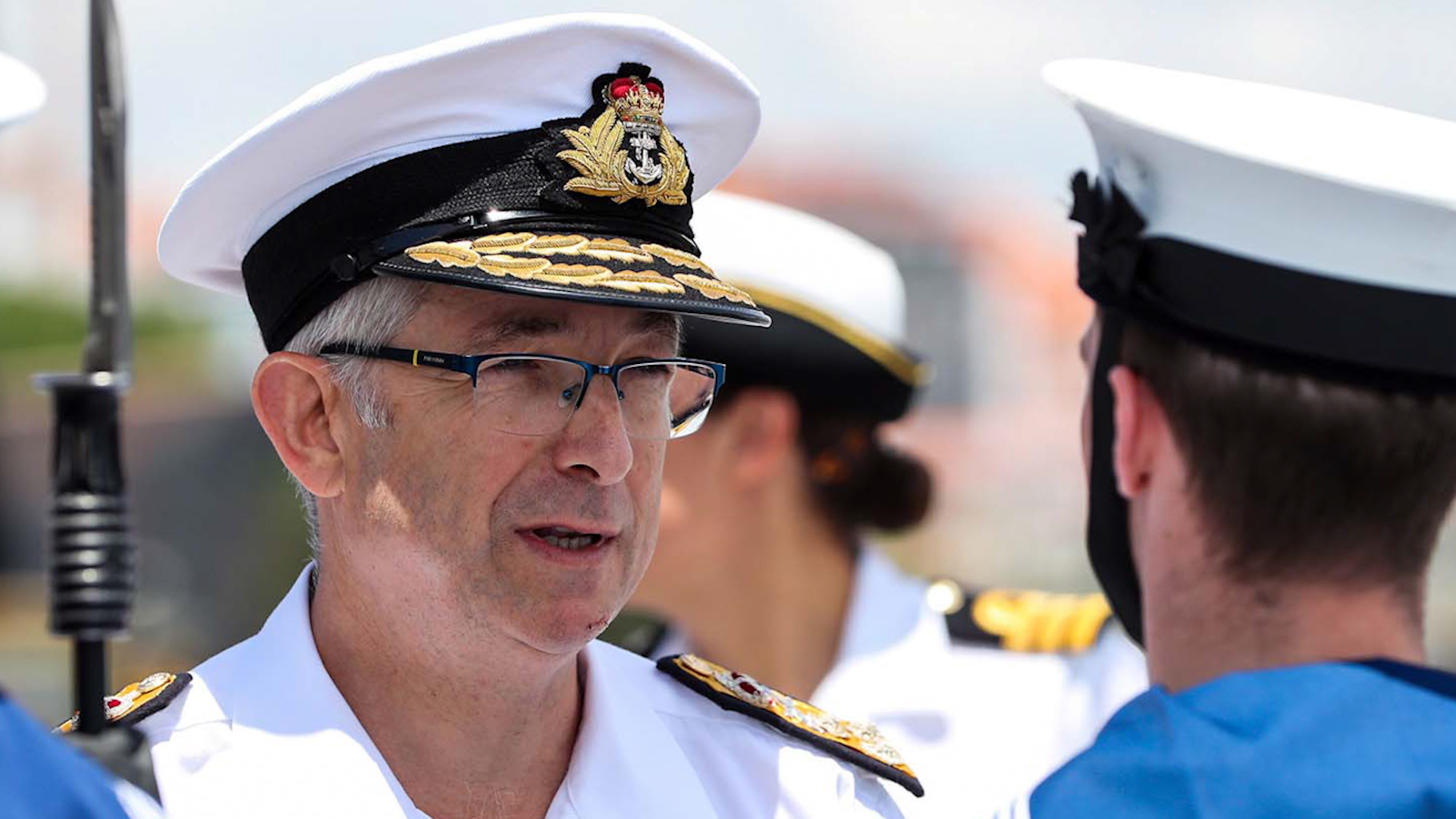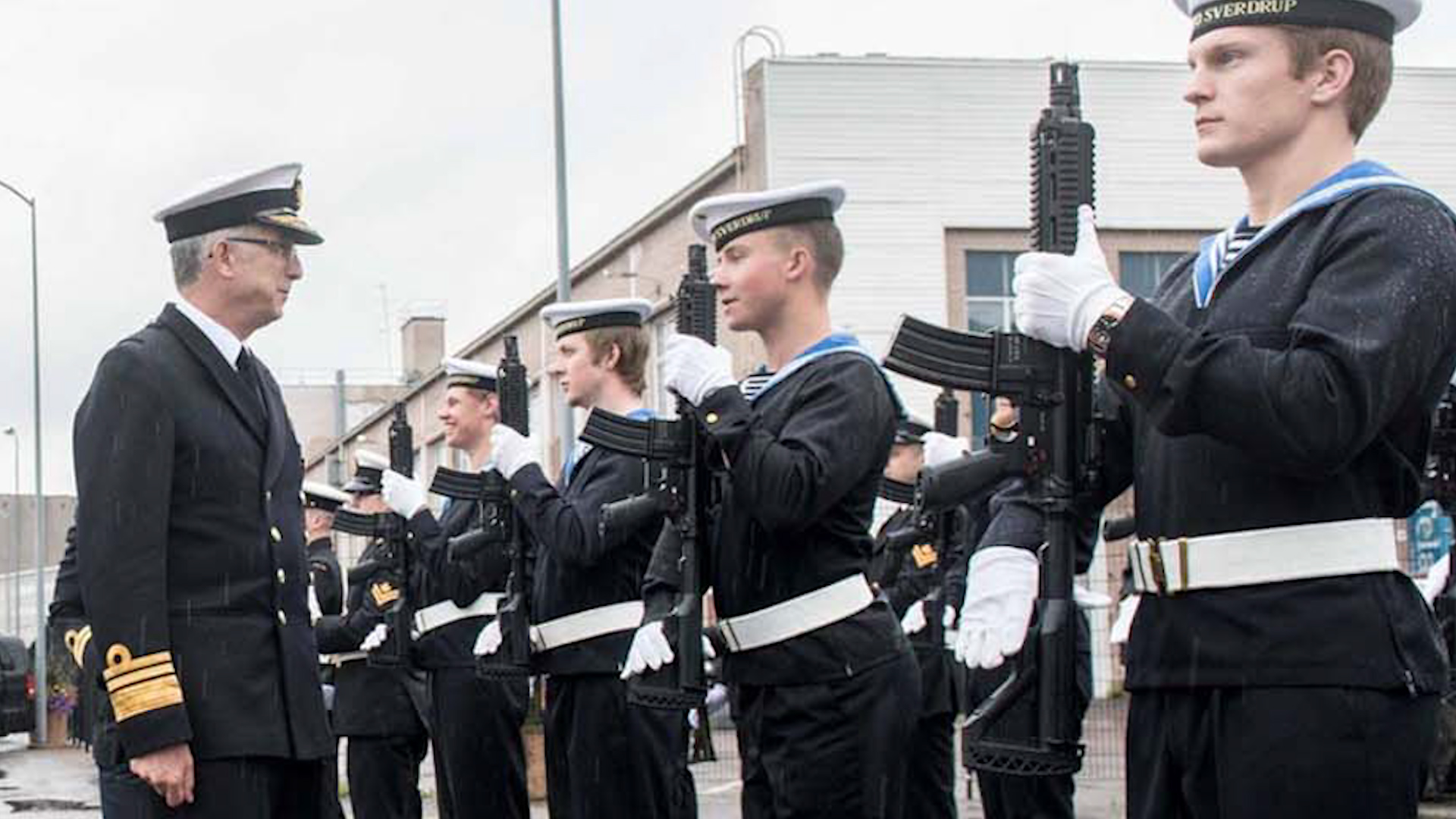
Sir Clive Johnstone: Tributes paid to extraordinary military leader and RBL president

Tributes have been paid from across the military world for one of the leading figures in the 21st century's Royal Navy, Vice Admiral Sir Clive Johnstone, who died suddenly.
For 35 years, he served the nation and the Navy by taking part in and directing key operations, before going on to champion veterans' causes when he retired from the service.
Sir Clive had been the national president of the Royal British Legion (RBL) for the last year, and it was on Sunday, shortly after the end of the charity's annual conference in Newport, that he was taken ill and died.
Tributes were led by First Sea Lord Admiral Sir Ben Key, who called Sir Clive an "outstanding officer and inspirational individual who positively impacted the lives of so many".
"He will be sorely missed," the Chief of the Naval Staff added.
The RBL described him as an "extraordinary military leader and person of great integrity and intellect" who was passionate about the Armed Forces charity.
Sir Clive's career was rich and varied, spanning from the final years of the Cold War, through conflicts in the Adriatic and Middle East to global operations and, most recently, the resurgent challenge of Russia.
He joined the Royal Navy in 1985 after reading anthropology at Durham University.

After navigating Ton-class minehunters, he served on the carrier HMS Invincible, then was principal warfare officer on HMS Boxer during the early stages of the Balkan conflict and again on the staff of the 1st Frigate Squadron.
As First Lieutenant of the Royal Yacht, he took part in the final acts of Britannia's outstanding career – including the Prince of Wales's historic visit to Northern Ireland, the handover of Hong Kong to China in 1997 and the final summer cruise of the Western Isles.
His first command was the frigate HMS Iron Duke, which supported operations in Kosovo in the late 1990s, and as Fleet Programmer in the early 2000s was involved in choreographing the Navy's response to a string of events at home – the national firefighters' strike – and abroad – the invasion of Iraq in 2003, Caribbean hurricanes and the 2004 Boxing Day tsunami.
The pace did not let up in command of HMS Bulwark, which was thrust into the global media spotlight in the summer of 2006 when she co-ordinated the evacuation of British citizens and entitled civilians from Lebanon.
Bulwark was Sir Clive's last permanent seagoing appointment although, as Flag Officer Sea Training, he oversaw and visited scores of Navy and allied vessels readying for deployment.
After two-and-a-half years as Assistant Chief of the Naval Staff, Sir Clive was appointed as the Commander of Nato's Allied Maritime Command, based at Northwood, a post he held for three-and-a-half years.
Sir Clive was knighted in the 2019 New Year Honours and left the Royal Navy at the beginning of 2020.
Since then, he worked in the shipbuilding industry, volunteered as vice patron of the Battle of the Atlantic Memorial in Liverpool and chaired the Naval Review, the long-standing journal championing naval thinking for the betterment of the Senior Service.
In May 2023, he became the national president of the Royal British Legion.
Sir Clive leaves his widow Alison and their daughters Phoebe and Emily.









